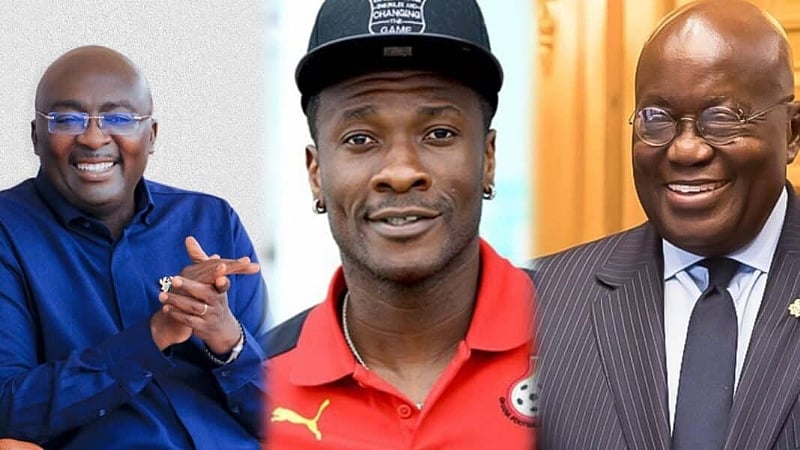Asamoah Gyan, the former captain of the Ghana Black Stars, recently stirred social media with an Instagram live session that showcased a departure from his typically reserved persona. In a candid and somewhat provocative commentary, reminiscent of the outspoken comedian Funny Face, Gyan addressed a range of topics, including his own personality, the recent fire outbreak at Kantamanto market, and his past experiences with public pronouncements. The session captured the attention of many, highlighting a more assertive side of the usually composed football star.
Gyan’s commentary began with a reflection on his own character. While publicly perceived as calm and collected, he revealed a more complex personality, suggesting a hidden “tough” side that he consciously chooses to keep private. This revelation offers a glimpse into the multifaceted nature of public figures, whose on-screen personas often mask a more nuanced private reality. Gyan’s statement hints at a deliberate strategy to manage his public image, choosing to present a more diplomatic and composed front. This carefully curated image stands in contrast to the unfiltered nature of his recent Instagram live session, creating a compelling juxtaposition for observers.
The conversation then shifted to the devastating fire at Kantamanto market, a major trading hub in Accra. Gyan ventured into politically charged territory, speculating on the potential causes of the inferno. He suggested two possible scenarios: either the ruling New Patriotic Party (NPP) orchestrating the fire to discredit the opposition National Democratic Congress (NDC), or the NDC themselves being responsible for the incident. These assertions, while presented as speculation, touched on sensitive political nerves, especially given the market’s economic importance and the potential for such an event to be exploited for political gain.
However, having voiced these potentially controversial theories, Gyan quickly retreated, stating his reluctance to delve deeper into the issue. This hesitation stemmed from his past experiences with public comments being misinterpreted or manipulated. He expressed a clear desire to avoid being used as a pawn in political games, suggesting a wariness born from previous incidents where his words were taken out of context or used to advance agendas he did not endorse. This caution reflects a growing awareness of the complexities of public discourse, particularly in the age of social media, where statements can be easily amplified and distorted.
The incident underscores the challenges faced by public figures navigating the delicate balance between expressing their opinions and avoiding becoming embroiled in controversies. Gyan’s initial willingness to speculate, followed by his swift retraction, suggests a tension between his desire to engage with current events and his learned caution about the potential repercussions. This internal conflict reflects a broader trend in public discourse, where individuals grapple with the implications of voicing their opinions in a highly charged and often polarized environment.
This incident provides valuable insight into the pressures faced by public figures like Asamoah Gyan. His commentary, although seemingly spontaneous, reveals a carefully considered approach to public engagement. He acknowledges the power of his words and the potential for them to be manipulated, ultimately choosing to prioritize self-preservation over engaging in potentially divisive debates. This episode serves as a reminder of the complexities of navigating the public sphere, where even seemingly innocuous comments can be subject to intense scrutiny and potentially damaging misinterpretations. It also highlights the evolving nature of public discourse, particularly in the digital age, where individuals must constantly weigh the benefits of expressing their views against the risks of being misconstrued or exploited.














